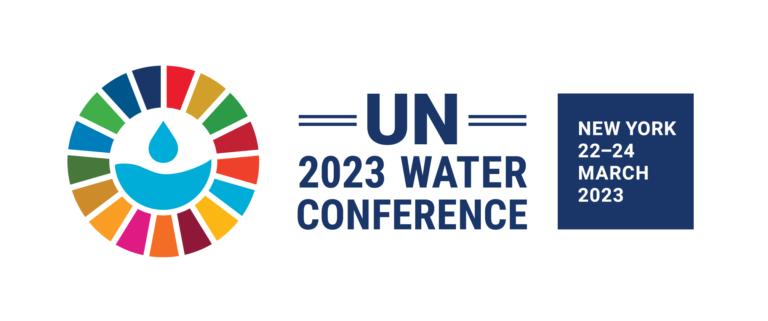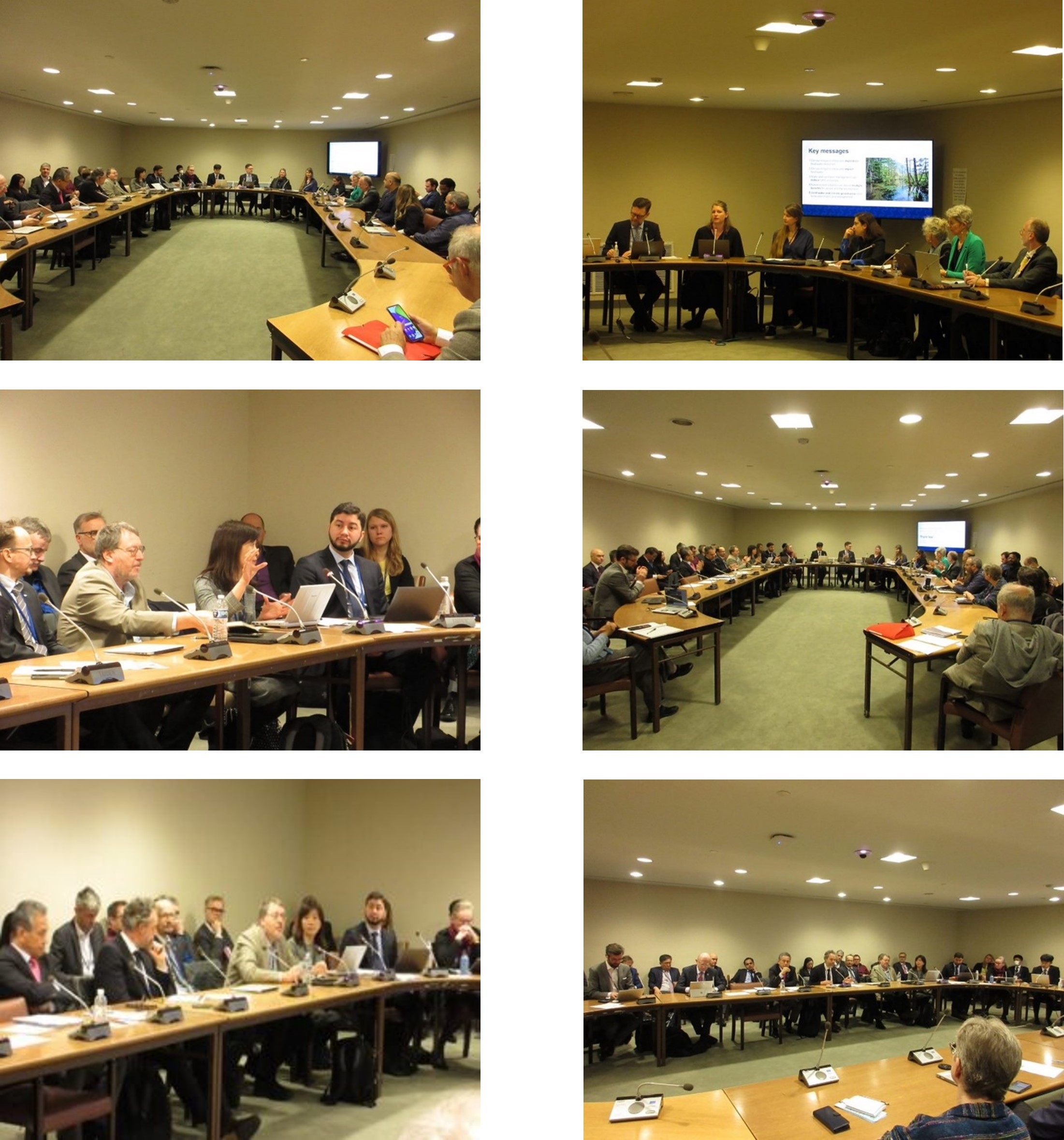(Reporter: Ms. Yumiko Asayama, Chief Manager, Japan Water Forum)
UN Water Conference 2023 Side event with the NoWNET Members “Promoting Private-Public Partnerships – a vehicle towards fulfilling SDG 6 and climate Actions.” (24th March 2023)
 JWF organized a side event, “Promoting Private-Public Partnerships – a vehicle towards fulfilling SDG 6 and climate Actions,” with the NoWNET member organizations on 24th March 2023 at the Side Room C UN HeadquafterInside.
JWF organized a side event, “Promoting Private-Public Partnerships – a vehicle towards fulfilling SDG 6 and climate Actions,” with the NoWNET member organizations on 24th March 2023 at the Side Room C UN HeadquafterInside.
The governments of Europe, Japan, and the Republic of Korea are at the forefront of addressing the challenges of climate change by collaborating with their private sectors to reduce greenhouse gas emissions and promote adaptation and resilience measures. They are achieving this by mainstreaming policies and measures through water cycle management, from the source to the sea, to mitigate the impacts of climate change and natural disasters. To explore the necessary triple or even quadruple helix structures as a vehicle towards achieving SDG 6, and the global targets, this side event discussed Private-Public Partnerships for climate change mitigation and NBS through Source-to-Sea approaches/ Sound water cycle management from the upper to lower basins by sharing good practices, lessons, and commitment in Europe, Japan, and Korea.
|
◇Lead organization: Japan Water Forum c/o NoWNET Secretariat |
◆ Key Issues discussed
・During the side event, A representative from SIWI and WaterAid delivered the keynote presentation introducing the report “The essential drop to Net-Zero: Unpacking freshwater’s role in climate change mitigation: Water-wise integrated approaches and nature-based solutions as tools for climate mitigation.”
・Denmark, France, Japan, South Korea, SIWI, and WWC/Nature Conservancy showcased their collaborative efforts through public and private partnerships, including the collaboration through the platform to tackle the challenges of climate change addressing IWRM/Source-to-Sea and sound water cycle management. They emphasized their commitment to reducing greenhouse gas emissions by promoting adaptation and resilience measures through comprehensive water cycle management, spanning from source to sea.
・Speakers also highlighted the importance of nature-based solutions for long-term sustainability and identifying synergies between climate change mitigation and adaptation. Additionally, they discussed how enhancing IWRM considering biodiversity, system resilience, and the achievement of SDGs can all be achieved through coordinated efforts to address the challenges posed by climate change.
・During the Q&A session with the audience, we explored the challenges arising from the public and private sector gap and identified several key points for improvement.
・Importance of transparency in interactions between the public and private sectors
・Civil society’s role in engaging with both sectors to address water resource problems
・Examples of successful business cases and the need for long-term funding strategies for nature-based solutions
・Importance of collaboration, science-based plans, and strong business cases to engage both sectors
◆ Key recommendations for action
・Strengthen governance through a polycentric system with integrated and coordinated approaches across sectors and levels, including non-public actors, and enabling conditions to achieve this include transparency, data-based decision-making, inclusive knowledge systems, and mobilizing finance.
・Address knowledge gaps and adapt governance frameworks to different scales and levels using multi-actor governance approaches to achieve win-wins and identify synergies.
・When making decisions, consider the entire water cycle and the interconnected ecosystems from source to sea. This holistic approach can enhance climate adaptation and mitigation by identifying trade-offs and co-benefits, safeguarding nature-based solutions, and creating funding mechanisms to strengthen system resilience.
・Implement comprehensive governance, legislation, and environmental standards to ensure sufficient, good-quality water for all uses while monitoring and developing solutions for substances posing environmental risks.
・Engage people in changing their water consumption habits for long-lasting water management at the basin level.
・Proactively share experiences, knowledge, and technology to encourage adopting best practices in sustainable water management.
・Implement “source-to-sea” (S2S) management for climate mitigation and adaptation, focusing on taking a holistic approach to decision-making and considering the whole water cycle and interconnected ecosystems from source to sea.
・Address fragmented governance, which is a barrier to decisive action, by identifying trade-offs and mutual benefits for all stakeholders, including the private sector.
Please refer to the document for more detail about each speaker’s talk summary and each organization’s Water Action Agenda. (PDF)
Side event Program
|
Session Introduction Keynote presentation: The essential drop to Net-Zero: Unpacking freshwater’s role in climate change mitigation: Water-wise integrated approaches and nature-based solutions as tools for climate mitigation Country and NGO’s examples and commitments Q&A Wrap up: Dr. Thomas Rebermark, Director, Swedish Water House |

